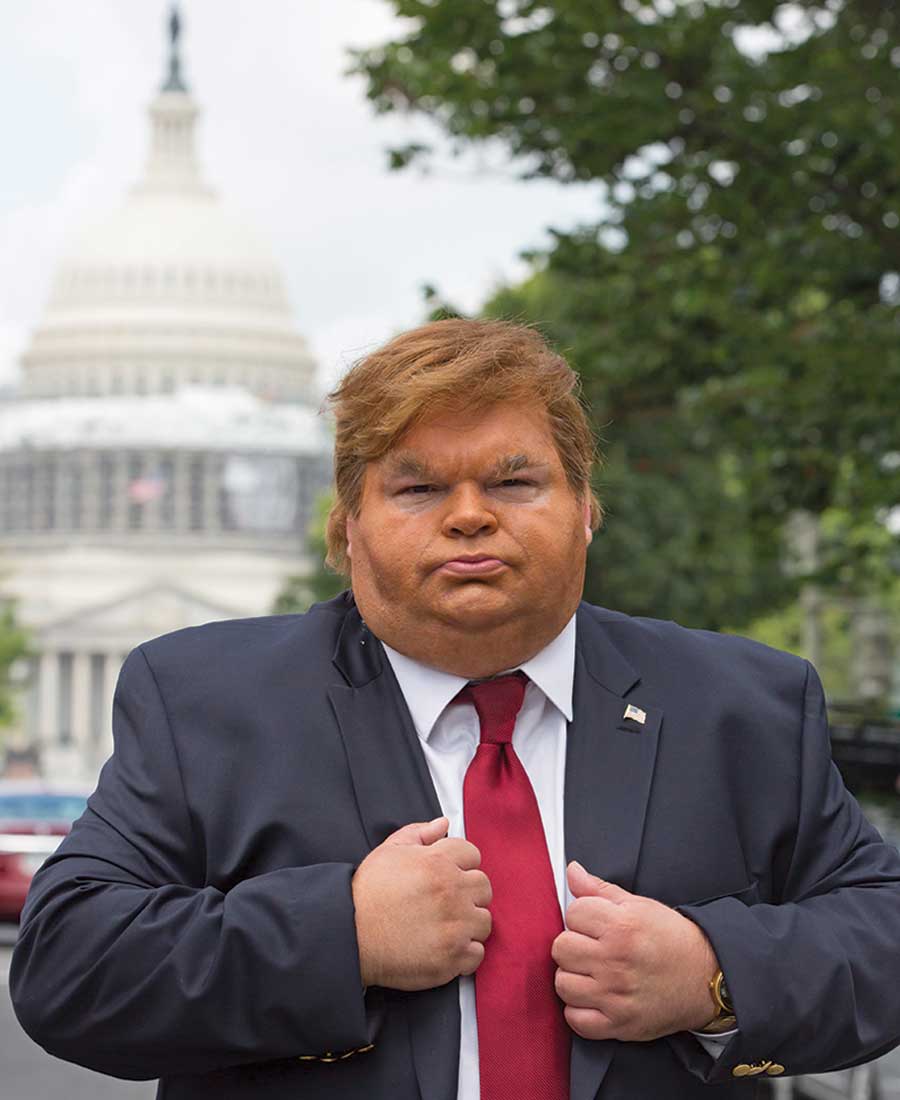Our Roles in the Drama
‘Political theatre’ should not be an automatic putdown; both politics and theatre can lie or speak truth, depending on how they’re used.

In a normal year, politics might be thought of as a branch of theatre, with its stagy dialogue, procedural drama, and poor players strutting and fretting their hours upon the stage, signifying—well, not nothing, exactly, though it can be hard to tell otherwise. But in this certifiably insane election year, which brings to mind the apocryphal curse “may you live in interesting times,” our politics, both nationally and globally, feel more like a kind of waking fever dream, an immersive psychodrama no self-respecting playwright would dare to imagine for fear of implausibility. The year of Trump and Brexit, Nice and Turkey, hasn’t just created a civilizational quandary of possibly epochal proportions; it has also, hardly coincidentally, left our storytellers, our dramatists, and our satirists with limited options to express and reflect the moment. After all, when the shape of reality already suggests the distorted grotesques of a funhouse mirror, what kind of mirror can the drama possibly hold up to it? If the stories in this special issue are any guide, it may be that the tools of theatre—empathy, narrative, unfakeable presence, narrative, the irreducible humanity underlying even the most transparently scripted performance—can show us a way forward, at the very least out of a solitary despair. If we are facing bleak and bewildering times, the exchange of theatre reminds us we are not alone in the dark.
‘Political theatre’ should not be an automatic putdown; both politics and theatre can lie or speak truth, depending on how they’re used.
A season of travel with this year’s presidential candidates proved that democracy is still a live event.
How has this unlikely presidential candidate gotten so far? By setting the stage and giving the performance of a lifetime.
Chicago’s Victory Gardens Theater scored an election-year win with a play about Hillary Clinton’s 2008 campaign.
A series of short plays about the whole lot features a choose-your-own-president ending, just like in real life.
A comedy troupe and an online magazine team for an up-to-the-minute political revue.
Theatres across the country are getting ready for election season.
The Washington Post columnist and playwright discusses her influences, the election, and the Welders.
‘Roe’ and ‘Dry Land’ are erasing the stigma of portraying women’s reproductive decisions onstage.
This week’s guest is composer Derrick Wang, whose opera ‘Scalia/Ginsburg’ is an exercise in bipartisanship. Plus, the editors discuss politics and artists’ compensation.